AI to Answer Interview Questions : A Career Coach’s Guide to Landing Your Dream Job
I still remember sitting in my car, sweating through my shirt before a big interview, frantically Googling “how to answer ‘tell me about yourself'” on my phone. Fast forward five years, and I’ve not only landed my dream job but also helped hundreds of job seekers as a career coach specializing in interview preparation.
The game-changer? Learning how to effectively use AI to answer interview questions.
When I first came across AI interview tools, I was skeptical. Could an algorithm really help with something as deeply human as a job interview? But after integrating these tools into my coaching practice—and witnessing clients go from repeated rejections to landing offers at top companies like Google, Amazon, and fast-growing start-ups—I’m now a firm believer.
When used correctly, AI can significantly elevate your interview performance.
In this guide, I’ll share everything I’ve learned about using AI for interview preparation—from generating strong answers to running realistic mock interview simulations. No tech jargon. No abstract theory. Just clear, practical advice from someone who has helped hundreds of job seekers succeed.
Before heading into your next interview, you might want to check out these top AI interview questions to prepare effectively.
Understanding AI for Interview Preparation: Separating Hype from Reality
Before diving into specific tools and techniques, let’s clarify what AI-powered interview prep actually is—and what it isn’t. Setting realistic expectations is key to using these tools effectively.
What AI Can (and Can’t) Do for Your Interviews: The Real Deal
AI interview tools can:
- Generate structured answer frameworks for common questions
- Provide objective feedback on your delivery and content
- Help you practice with realistic simulations
- Identify patterns in your responses that need improvement
- Suggest industry-specific terminology and examples
- Help you customize answers for different roles
However, AI cannot:
- Perfectly replicate human interviewer judgment
- Replace authentic personal stories and experiences
- Understand company culture nuances without specific input
- Guarantee success regardless of your qualifications
- Replace the need for genuine preparation and practice
I learned these limitations first-hand when a client followed an AI-generated script verbatim for a creative role interview. The hiring manager immediately sensed the inauthenticity and later told my client they seemed “rehearsed and robotic.” This taught me an important lesson: AI should enhance your authentic voice, not replace it.
Coaching moment: I now tell all my clients, “Think of AI as your interview prep assistant, not your ghost-writer. It can help structure your thoughts and provide feedback, but your unique experiences and personality must shine through.”
Types of AI Interview Tools: Your Digital Preparation Team
There are several categories of AI tools that serve different functions in interview preparation:
- Answer Generators: Help craft responses to common interview questions
- Mock Interview Simulators: Provide practice interviews with AI interviewers
- Feedback Analysis Tools: Evaluate your responses and delivery
- Research Assistants: Gather company and role-specific information
- Coaching Systems: Provide personalized improvement recommendations
- Real-time Interview Assistants: Offer support during actual interviews
When I first started using AI for interview prep, I focused exclusively on answer generators. While helpful, I quickly realized that the most effective approach combines multiple tool types for comprehensive preparation. Now I use a combination of tools with my clients, tailored to their specific needs and interview types.
Real-world example: My client Sarah was technically brilliant but struggled with behavioral questions. We used an answer generator to create frameworks for common questions, a mock interview simulator for practice, and a feedback analysis tool to identify her tendency to speak too quickly when nervous. This comprehensive approach helped her land a senior developer role after months of failed interviews.
If you’re looking for remote AI jobs after mastering your interview prep, there are some excellent options available.
The Ethics of Using AI for Interviews: Finding the Right Balance
Before we go further, let’s address the elephant in the room: Is using AI for interview preparation ethical?
In my professional opinion, using AI as a preparation and learning tool is completely ethical when:
- You use it to structure and enhance your own authentic experiences
- You don’t fabricate qualifications or experiences you don’t have
- You use it as a coach and guide, not a replacement for genuine preparation
- You adapt AI suggestions to match your personal communication style
- You’re transparent if directly asked about your preparation methods
I compare it to using a fitness trainer—the trainer provides guidance, techniques, and feedback, but you still have to do the actual work. Similarly, AI interview tools provide frameworks and feedback, but you need to fill them with your authentic experiences and deliver them naturally.
Ethics in practice: One client asked if he should use AI to invent accomplishments that would “sound better” than his actual experience. I explained that this crosses the ethical line and would likely backfire—either during the interview when he couldn’t speak authentically about these fabricated experiences, or worse, after being hired when he couldn’t deliver on the falsely claimed skills.
Want to go a step further? Learn how to showcase your skills using AI tools that create impressive demos and portfolios.
Getting Started with AI Interview Preparation: Your First Steps
Ready to incorporate AI into your interview preparation? Here’s how to begin.
Assessing Your Interview Needs: Know Thyself First
Before selecting tools, evaluate your specific interview challenges:
- Identify your weaknesses: Are you struggling with structure, content, delivery, or confidence?
- Consider the role type: Technical, creative, leadership, and entry-level positions require different preparation approaches
- Analyze past feedback: Review comments from previous interviews to identify patterns
- Determine interview format: Different tools work better for various formats (panel, behavioral, case study, etc.)
- Set clear goals: Define what success looks like for your preparation
When I work with new clients, we start with a “mock interview diagnostic” to identify specific areas for improvement. One client consistently received feedback that her answers were too vague. By focusing our AI preparation on adding specific metrics and outcomes to her responses, she transformed her interview performance and received three offers after months of rejections.
Self-assessment technique: I ask clients to record themselves answering, “Tell me about yourself” without preparation. Then we analyze it together—noting rambling sections, missed opportunities to highlight relevant achievements, and non-verbal cues like filler words or nervous gestures. This baseline helps us target our AI-assisted preparation effectively.
Choosing the Right AI Interview Tools: Quality Over Quantity
With dozens of AI interview tools available, selecting the right ones can be overwhelming. Here’s my framework for making good choices:
- Start with your biggest pain points: Choose tools that address your most significant challenges
- Consider your interview stage: Different tools work better for different phases (initial screening vs. final rounds)
- Evaluate customization options: Look for tools that can be tailored to your industry and role
- Check for feedback quality: The best tools provide specific, actionable feedback
- Assess ease of use: Complex tools won’t help if you can’t use them effectively
- Verify privacy policies: Ensure your data is protected, especially for sensitive career information
After testing over 30 different AI interview tools with my clients, I’ve found that the most effective ones offer customization for specific industries and roles. Generic tools might help with basic structure, but industry-tailored ones provide much more relevant guidance.
Tool selection story: When working with a client interviewing for a healthcare administration role, we initially used a general AI interview tool. The feedback was technically correct but missed industry-specific nuances. Switching to a healthcare-focused tool transformed her preparation—it understood regulatory considerations, suggested relevant terminology, and provided scenarios specific to hospital administration challenges.
Essential AI Interview Tool Categories: Building Your Toolkit
Based on my experience, these are the core AI interview tool categories to consider:
- Large Language Model Platforms:
- ChatGPT, Claude, or Gemini for customizable interview preparation
- Best for: Crafting personalized answers and receiving feedback
- My experience: Excellent for developing answer frameworks when given specific prompts
- Dedicated Interview Preparation Platforms:
- Interviewer.AI, Yoodli, or InterviewPrep.AI
- Best for: Comprehensive preparation with structured feedback
- My experience: Provides more specialized guidance than general AI tools
- Video Practice and Analysis Tools:
- Hireview, Interviewer.AI, or Pramp
- Best for: Analyzing delivery, body language, and speech patterns
- My experience: Helps identify unconscious habits clients aren’t aware of
- AI Resume-Interview Alignment Tools:
- Jobscan Interview, ResyMatch.io, or Teal
- Best for: Ensuring consistency between resume and interview answers
- My experience: Critical for helping clients maintain a coherent professional narrative
- Industry-Specific Preparation Tools:
- TechInterviewPro, BehavioralInterviewEdge, or ConsultingCase.AI
- Best for: Role-specific preparation with industry context
- My experience: Dramatically improves performance for specialized roles
For beginners, I recommend starting with a general AI platform like ChatGPT or Claude to explore basic interview preparation, then adding specialized tools as you identify specific needs in your preparation process.
Toolkit evolution: My client Miguel started with just ChatGPT to structure his answers. As he progressed, we added a video analysis tool that identified his tendency to speak in monotone when discussing technical topics. Finally, we incorporated an industry-specific tool for finance interviews that helped him prepare for technical questions about market analysis. This layered approach helped him secure a financial analyst position at a top investment firm.
Curious about how recruiters use AI? Here’s how HR professionals use AI in the hiring process.
Setting Up Your AI Interview Preparation System: Creating Your Process
Here’s a step-by-step approach to implementing your AI interview preparation system:
- Create a question bank: Compile likely interview questions for your target role
- Set up your core AI tools: Choose 2-3 complementary tools from different categories
- Develop your answer framework: Use AI to create structures for common questions
- Build a practice schedule: Plan regular sessions with increasing difficulty
- Establish feedback loops: Set up systems to track improvement over time
- Organize your preparation materials: Keep AI-generated content and feedback organized
One of my most successful clients created what she called an “Interview Bible”—a document containing AI-generated frameworks for 50+ potential questions, customized with her personal experiences and achievements. She updated this document after each practice session based on AI feedback, creating an evolving preparation resource that ultimately helped her land a role at a FAANG company.
Organization tip: I recommend creating a digital folder with subfolders for different question types (behavioral, technical, company-specific, etc.). Within each, store your AI-generated frameworks, personalized answers, feedback received, and improvement notes. This systematic organization prevents last-minute scrambling and builds confidence through visible preparation progress.
Using AI to Craft Powerful Interview Answers: From Generic to Compelling
Now let’s explore specific strategies for using AI to develop compelling interview responses.
Structuring Answers with AI Frameworks: Building Strong Foundations
AI excels at providing clear structures for different question types:
- STAR Method Enhancement:
- Provide AI with your basic Situation/Task/Action/Result
- Ask it to strengthen your structure and identify missing elements
- Request suggestions for quantifiable impacts to add
- Use AI to ensure proper time allocation across STAR components
- Behavioral Question Frameworks:
- Input your experience related to the question
- Ask AI to organize it into a compelling narrative
- Request feedback on specificity and relevance
- Use AI to identify opportunities to showcase key skills
- Technical Answer Organization:
- Provide your technical approach to a problem
- Ask AI to structure it for clarity and logical flow
- Request suggestions for addressing edge cases
- Use AI to simplify complex concepts for non-technical interviewers
One of my engineering clients struggled with rambling technical answers. We used AI to create a simple “Context → Approach → Implementation → Result → Learning” framework for each technical story. This structure helped him deliver clear, concise responses that impressed interviewers with both his technical knowledge and communication skills.
Framework example: For the common “Tell me about a time you failed” question, I have clients use AI to create a “Challenge → Approach → Mistake → Immediate Response → Long-term Learning → Application” framework. This structure ensures they don’t dwell too long on the failure itself and instead emphasize growth and application of lessons learned—exactly what interviewers are looking for.
🧠 Related Posts You Might Like
Personalizing AI-Generated Content: Making It Authentically Yours
The key to effective AI interview preparation is personalization:
- Inject your unique experiences:
- Start with AI-generated frameworks
- Replace generic examples with your specific stories
- Add personal details that showcase your authentic self
- Incorporate your professional values and perspective
- Adapt to your speaking style:
- Modify formal language to match your natural communication
- Add transition phrases you commonly use
- Adjust vocabulary to reflect your typical expression
- Restructure complex sentences for your speaking rhythm
- Incorporate company research:
- Weave company values and mission into your answers
- Reference specific company initiatives or challenges
- Align your experiences with the company’s needs
- Customize examples to the company’s industry context
I always tell my clients: “AI gives you the skeleton, but you need to add the flesh, blood, and personality.” One client took an AI-generated answer about leadership and transformed it by incorporating a personal story about leading her community theater group through a funding crisis—something uniquely hers that no AI could generate but that perfectly demonstrated her leadership philosophy.
Personalization exercise: I have clients read their AI-generated answers aloud and mark any phrase that doesn’t sound like something they’d naturally say. Then we rework those sections using their own vocabulary and speech patterns. This simple exercise transforms generic-sounding responses into authentic personal narratives.
You can also explore AI jobs that don’t require interviews for quicker entry into the industry.
Crafting Stories and Examples with AI Assistance: Becoming Memorable
Compelling stories make interviews memorable:
- Story mining with AI:
- List your professional experiences
- Ask AI to identify which experiences best demonstrate specific skills
- Use AI prompts to recall details you might have forgotten
- Have AI help you connect experiences to common interview questions
- Story enhancement:
- Share your basic story outline with AI
- Request suggestions for making the challenge more vivid
- Ask for help identifying the most impressive aspects of your actions
- Use AI to strengthen the connection between your actions and results
- Creating a story bank:
- Develop 5-10 flexible stories that showcase different skills
- Use AI to identify which stories could answer multiple question types
- Create variations of each story for different question contexts
- Organize stories by competency and situation type
A client interviewing for a product management role used AI to analyze her experience launching a failed product. The AI helped her reframe the story to emphasize the valuable insights gained and how they informed her subsequent successful launch. This transformed a potential negative into one of her strongest interview answers.
Story development technique: I teach clients the “Zoom In, Zoom Out” method with AI assistance. First, they write their story with all details (Zoom In). Then they ask AI to identify the most impactful 20% that demonstrates the required skill. Finally, they practice telling just that essential portion (Zoom Out), adding back details only as needed for clarity. This creates concise, powerful stories that interviewers remember.
Handling Difficult Questions with AI Support: Turning Challenges into Opportunities
Some questions are particularly challenging:
- Weakness questions:
- Provide AI with your actual areas for growth
- Ask for help framing them constructively
- Request suggestions for demonstrating self-awareness
- Use AI to develop compelling improvement narratives
- Salary expectations:
- Input market research data into AI
- Ask for help crafting negotiation language
- Request scripts for different compensation scenarios
- Use AI to practice responses to pushback
- Gap explanation:
- Share the honest reason for your career gap
- Ask AI to help frame it positively
- Request language that emphasizes continued growth during the gap
- Use AI to connect skills developed during the gap to the target role
- Failure discussions:
- Describe a genuine professional failure
- Ask AI to help structure a response showing accountability
- Request guidance on emphasizing learning and growth
- Use AI to ensure the story demonstrates resilience
One client had a two-year employment gap due to health issues. We used AI to help her craft language that was honest about the gap while emphasizing the perspective and resilience she gained—without oversharing medical details. The resulting answer was so compelling that one interviewer commented it was what made her stand out from other candidates.
Difficult question strategy: For the dreaded “Why are you leaving your current job?” question, I have clients list both the push factors (what they’re leaving) and pull factors (what they’re seeking). Then we use AI to craft responses that minimize the push factors (without being negative) and emphasize the pull factors that align with the new opportunity. This approach transforms a potentially negative question into a positive expression of career goals.
Planning your AI career? Don’t miss the AI Engineer Roadmap for 2025 to stay on track.
AI-Powered Interview Practice and Feedback: Rehearse to Success
Crafting answers is just the beginning. AI truly shines in providing practice opportunities and objective feedback.
Setting Up AI Mock Interviews: Your 24/7 Practice Partner
Effective practice requires realistic simulation:
- Role-specific interview creation:
- Configure AI with your target role and company
- Provide the job description for context
- Set appropriate difficulty levels
- Request industry-specific technical or behavioral questions
- Interview format simulation:
- Create different scenarios (phone screen, panel, technical, etc.)
- Set time limits that match real interviews
- Include common interruptions and follow-ups
- Simulate different interviewer personalities
- Progressive difficulty:
- Start with basic, expected questions
- Gradually introduce more challenging scenarios
- Add stress elements as you improve
- Incorporate curveball questions to build adaptability
I developed what I call the “3-2-1 Method” for my clients: three rounds of AI practice interviews with prepared answers, two rounds with minimal preparation time, and one final round with unexpected questions. This progression builds both confidence and adaptability.
Simulation insight: My client Jason was consistently getting to final rounds but not receiving offers. Through AI mock interviews, we discovered he performed well with standard questions but became flustered with unexpected follow-ups. We created a custom AI interview simulator that specifically focused on challenging follow-up questions. After two weeks of intensive practice, he successfully navigated a tough final interview and received an offer.
Getting Meaningful Feedback from AI: Beyond Generic Advice
AI feedback is most valuable when properly configured:
- Specific feedback requests:
- Ask for evaluation on particular aspects (structure, examples, delivery)
- Request comparison to industry standards
- Seek feedback on both content and presentation
- Ask for identification of missed opportunities
- Feedback prioritization:
- Have AI rank improvement areas by impact
- Request distinction between critical issues and minor refinements
- Ask for the top three most impactful changes you could make
- Use AI to identify patterns across multiple practice sessions
- Actionable improvement suggestions:
- Request specific examples of better phrasing
- Ask for before/after comparisons
- Seek concrete exercises to address weaknesses
- Use AI to create personalized improvement plans
The quality of AI feedback depends heavily on how you ask for it. I teach clients to avoid generic requests like “How was my answer?” Instead, I recommend specific prompts like “How could I make my example of leadership more impactful?” or “What key qualifications from the job description did I fail to address?”
Feedback transformation: My client Elena was receiving generic feedback from AI that wasn’t helping her improve. We changed her prompt to include the specific job description and a request to evaluate her answers against the top three required skills. This focused approach helped her tailor each response precisely to what the hiring manager was seeking, and she received positive feedback in her next interview about how well her experience aligned with their needs.
Analyzing Verbal and Non-Verbal Communication: The Complete Package
Advanced AI tools can evaluate how you say things, not just what you say:
- Speech pattern analysis:
- Pace, tone, and volume assessment
- Filler word identification
- Energy level evaluation
- Clarity and articulation feedback
- Non-verbal communication review:
- Facial expression analysis
- Eye contact assessment
- Posture and body language feedback
- Gesture evaluation
- Engagement measurement:
- Enthusiasm detection
- Confidence assessment
- Authenticity evaluation
- Rapport-building capability
Video-based AI interview tools have transformed how my clients prepare for virtual interviews. One client discovered through AI analysis that she unconsciously looked down when discussing her accomplishments, undermining her confidence. Simple awareness of this habit allowed her to maintain stronger eye contact, projecting the confidence she actually felt about her achievements.
Communication breakthrough: My client Michael spoke with a monotone voice that made interviewers perceive him as disinterested. Using an AI tool that analyzed vocal variety, we identified specific points in his answers where adding vocal emphasis would create more engagement. After practicing with this feedback, his next interviewer commented on his “obvious passion” for the work—a complete reversal from previous feedback.
Tracking Improvement Over Time: The Progress Principle
Measuring progress keeps you motivated and focused:
- Baseline establishment:
- Record initial performance metrics
- Document specific improvement goals
- Set measurable targets for key areas
- Create a timeline for improvement
- Progress tracking:
- Use AI to compare current and past performances
- Track improvement across multiple dimensions
- Identify areas of rapid vs. slow improvement
- Celebrate meaningful progress milestones
- Adaptive practice planning:
- Focus on areas showing slowest improvement
- Increase difficulty as performance improves
- Adjust practice frequency based on progress
- Modify strategies for stubborn problem areas
I have clients create what I call an “Interview Growth Chart” that tracks their progress on key metrics like answer conciseness, example specificity, question coverage, and delivery confidence. This visual representation of improvement provides motivation and direction for continued practice.
Progress visualization: My client Tomas created a spider chart with eight dimensions of interview performance, rating himself from 1-10 on each dimension after every practice session. Seeing his “technical knowledge communication” score rise from 4 to 8 over three weeks provided concrete evidence that his practice was working, boosting his confidence for the actual interview.
Advanced AI Interview Strategies: Gaining the Competitive Edge
Once you’ve mastered the basics, these advanced techniques can further elevate your interview performance.
Company-Specific Preparation with AI: Tailoring Your Approach
AI can help you customize your preparation for specific companies:
- Company value alignment:
- Feed company mission and values into AI
- Ask for help aligning your experiences with their culture
- Generate company-specific versions of your key stories
- Create responses that reflect their terminology and priorities
- Interviewer research integration:
- Research your interviewers on LinkedIn and other platforms
- Input their backgrounds into your AI preparation
- Generate conversation points relevant to shared interests or experiences
- Prepare for their likely focus areas based on their roles
- Company challenge addressing:
- Research current company challenges or initiatives
- Use AI to help formulate how your skills address these specific needs
- Prepare questions that demonstrate your understanding of their situation
- Create examples showing how you’ve solved similar problems
One client was interviewing at a company undergoing a major digital transformation. We used AI to help her reframe her experiences specifically around change management and digital adoption—topics we knew would resonate with their current challenges. This targeted preparation helped her connect her experience directly to their needs, resulting in an offer.
Company customization example: For a client interviewing at a company known for its strong environmental stance, we used AI to help identify aspects of his previous work that had environmental implications—something he hadn’t considered highlighting. This alignment with company values helped him stand out among technically similar candidates.
Role-Specific AI Interview Preparation: Specialized Approaches
Different roles require different preparation strategies:
- Technical roles:
- Use AI to generate practice problems similar to likely interview questions
- Create explanations of complex concepts for non-technical interviewers
- Develop frameworks for discussing technical decisions and trade-offs
- Practice translating technical accomplishments into business impact
- Leadership positions:
- Generate scenarios to demonstrate different leadership styles
- Create frameworks for discussing team development and conflict resolution
- Develop stories showcasing strategic thinking and vision
- Prepare examples of driving organizational change
- Creative roles:
- Use AI to help articulate your creative process
- Develop language for discussing creative problem-solving
- Create frameworks for presenting portfolio work effectively
- Prepare for questions about handling creative differences
- Customer-facing positions:
- Generate realistic customer interaction scenarios
- Develop frameworks for discussing customer success stories
- Create responses demonstrating empathy and service orientation
- Prepare examples of turning difficult customers into advocates
I worked with a creative director who was excellent at design but struggled to articulate her creative process in interviews. We used AI to help her break down her intuitive approach into clear, communicable steps. This structure helped her explain her creative thinking to analytical hiring managers without diminishing the creative aspects of her work.
Role specialization insight: For technical clients, I use AI to create what I call “technical translation exercises”—practice explaining complex concepts at three different levels: to a technical peer, to a non-technical manager, and to a client or customer. This versatility in communication style is often what separates successful technical candidates from those who remain individual contributors.
Using AI for Interview Research and Preparation: Beyond Answer Practice
AI can enhance your overall interview readiness:
- Company research assistance:
- Analyze company news, reports, and press releases
- Identify key strategic initiatives and challenges
- Summarize company culture and values
- Prepare relevant questions based on recent developments
- Industry trend analysis:
- Identify emerging trends in your target industry
- Prepare to discuss how these trends impact the role
- Develop informed opinions on industry developments
- Create questions that demonstrate industry awareness
- Competitor comparison preparation:
- Analyze how the company positions against competitors
- Prepare to discuss competitive advantages and challenges
- Develop insights about market positioning
- Create questions about competitive strategy
- Role evolution understanding:
- Research how your target role is evolving in the industry
- Prepare to discuss future skill requirements
- Develop perspective on how the role contributes to business goals
- Create questions about the role’s growth trajectory
One client used AI to analyze the last year of press releases and earnings calls for his target company, identifying a strategic shift toward data-driven decision making. He prepared specific examples of how he had led data initiatives in previous roles, directly addressing an unstated but critical company priority. The interviewer was impressed by his insight into their current direction.
Research strategy: I teach clients to use AI to create a “Company Context Document” that synthesizes information from the company website, recent news, employee reviews, and social media. This comprehensive overview helps them understand the company’s current situation and priorities, allowing for much more targeted interview preparation.
The Future of AI in Interview Preparation: Staying Ahead of the Curve
As AI continues to evolve, here’s how to leverage emerging capabilities and prepare for changing interview landscapes.
Emerging AI Interview Technologies: What’s Next
Keep an eye on these developing areas:
- Emotion AI and Sentiment Analysis:
- Tools that provide feedback on emotional expression
- Systems that detect interviewer engagement and interest
- Technologies that recommend adjustments based on emotional impact
- Immersive Interview Simulation:
- VR-based interview practice environments
- AI interviewers with realistic facial expressions and responses
- Simulated panel interviews with multiple AI personalities
- Real-time Interview Coaching:
- Discreet AI assistants providing guidance during actual interviews
- Real-time translation of technical concepts for different audiences
- Subtle prompting systems for virtual interviews
- Personalized Learning Algorithms:
- Systems that adapt to your specific improvement needs
- Customized practice regimens based on learning patterns
- Progressive difficulty adjustment based on performance
I’m particularly excited about the development of more sophisticated emotion AI. Early versions are already helping my clients become more aware of how they’re perceived emotionally during interviews, addressing issues like appearing disinterested when they’re actually just concentrating.
Future preparation: As these technologies emerge, I recommend experimenting with them in low-stakes situations first. One client tested a real-time coaching tool during mock interviews before deciding whether to use it during actual screening interviews. This measured approach helps you leverage new technologies without becoming dependent on them.
Preparing for AI-Conducted Interviews: The Other Side of the Table
As more companies use AI to conduct initial interviews:
- Understanding AI interviewer patterns:
- Recognize common AI interview structures
- Prepare for standardized question sequences
- Understand how AI evaluates responses
- Balancing human and AI audiences:
- Craft answers that satisfy algorithmic evaluation
- Maintain authentic human connection despite the medium
- Include appropriate keywords without sounding robotic
- Adapting to AI interview formats:
- Prepare for video recording formats with no immediate feedback
- Practice timed responses for structured AI assessments
- Develop comfort with speaking to a screen rather than a person
- Leveraging AI interview insights:
- Understand what the AI is measuring in your responses
- Emphasize relevant skills and experiences clearly
- Structure answers for both human and algorithmic evaluation
Several of my clients have faced HireVue and similar AI-conducted initial interviews. We’ve found that clear structure, specific examples with measurable results, and slightly more deliberate speech patterns tend to perform well in these formats. However, it’s crucial to maintain your authenticity rather than trying to “game” the system.
AI interview adaptation: For clients facing AI-conducted interviews, we practice with the camera positioned directly at eye level and with the client looking directly into the lens while speaking. This creates the impression of direct eye contact and tends to score better in AI evaluations while also creating better recordings for any human reviewers.
Conclusion: The Human-AI Partnership in Interview Success
Using AI to answer interview questions has transformed how my clients prepare for and perform in job interviews. But the most important lesson I’ve learned as a coach is that AI is most effective when it enhances human strengths rather than trying to replace them.
The most successful approach combines AI’s analytical power with your unique human qualities:
- Let AI handle the structure: Use AI to create frameworks and organize your thoughts
- You provide the substance: Fill those structures with your authentic experiences and insights
- Let AI offer objective feedback: Use AI to identify improvement areas without emotion
- You bring the connection: Add the warmth, enthusiasm, and personality that no AI can replicate
- Use AI for practice: Leverage AI for unlimited practice opportunities
- You make the real human connection: Apply what you’ve learned to build genuine rapport with interviewers
As you implement AI in your interview preparation, remember that the goal isn’t to sound perfect or rehearsed—it’s to present your best, most authentic self with confidence and clarity.
The future of interview success isn’t AI alone, nor is it humans working without technological assistance. It’s a thoughtful partnership between your unique qualities and AI’s capabilities, each handling the aspects of interview preparation they’re best suited for.
What aspects of interview preparation do you find most challenging? Have you already used AI tools to help prepare for interviews? Share your experiences and questions in the comments

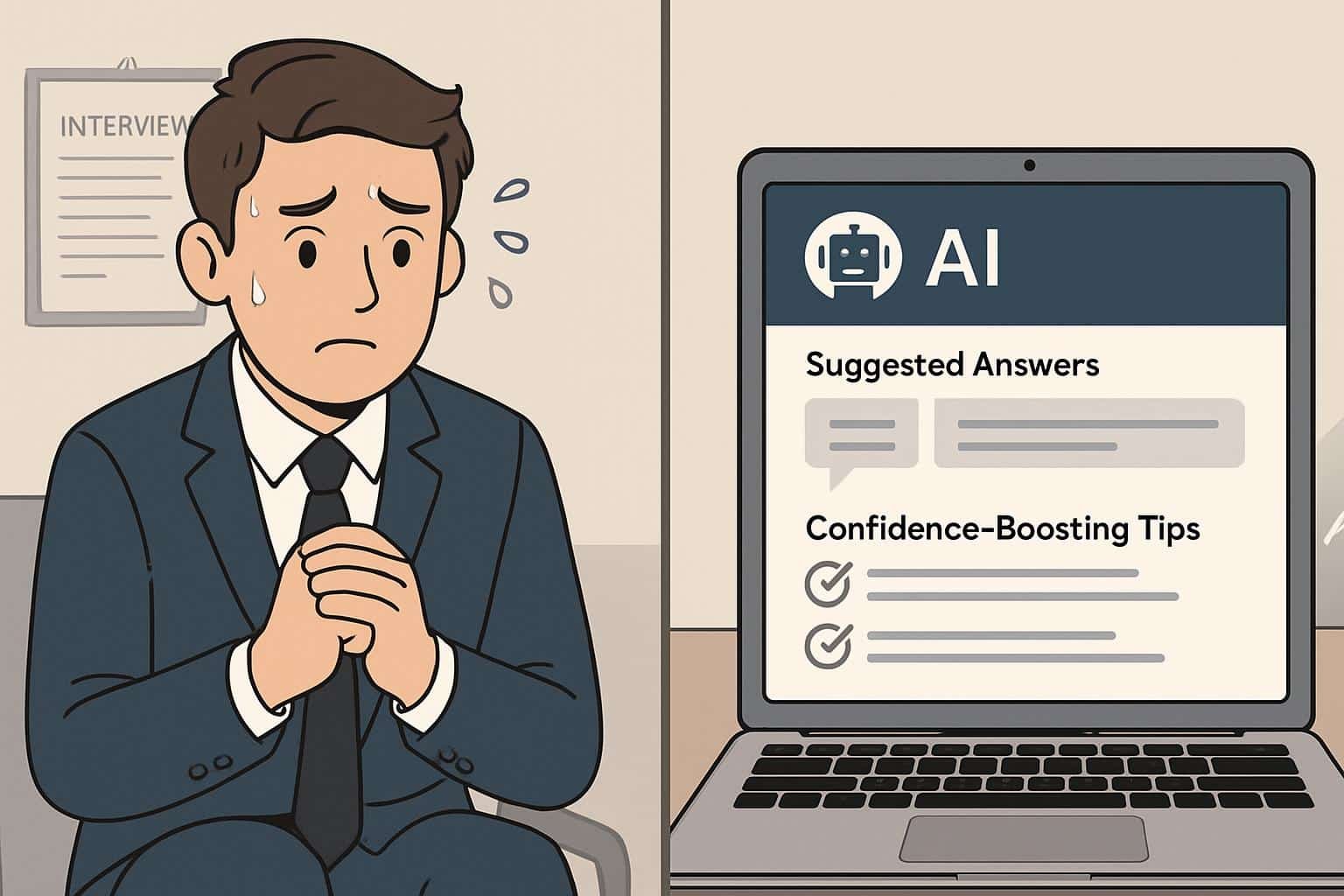
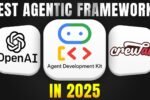

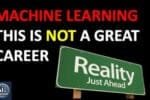

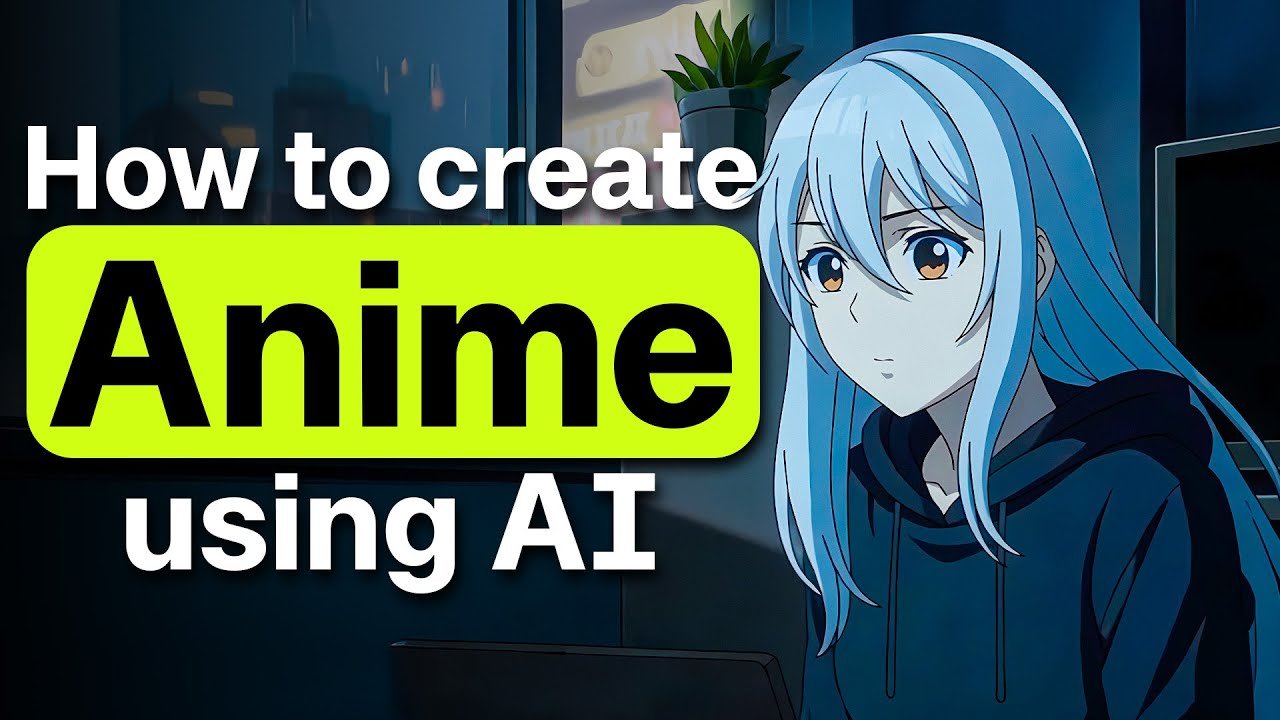
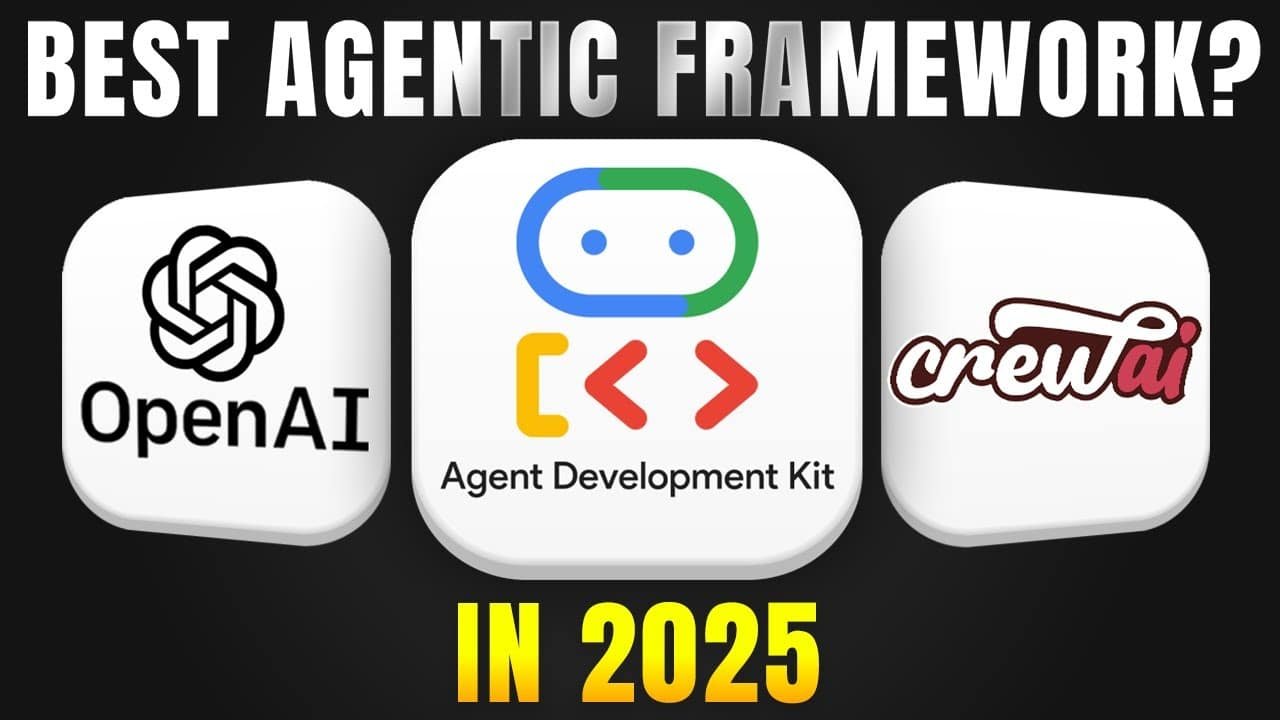

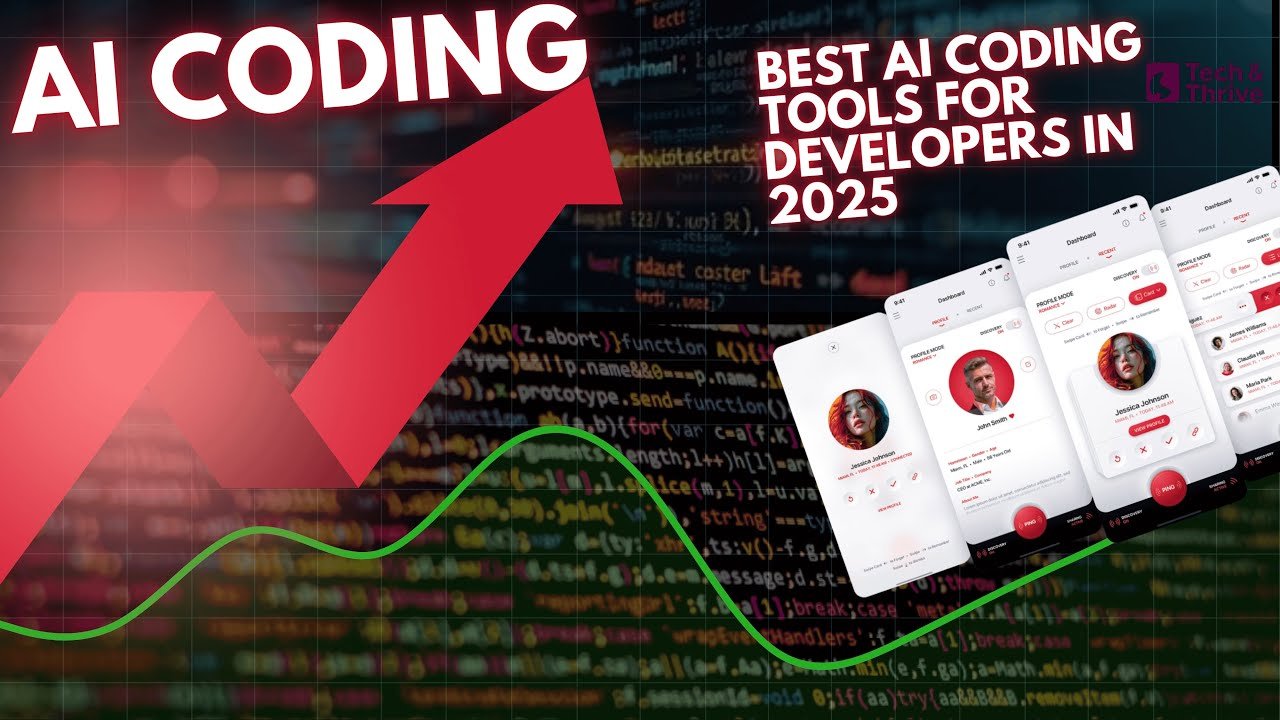
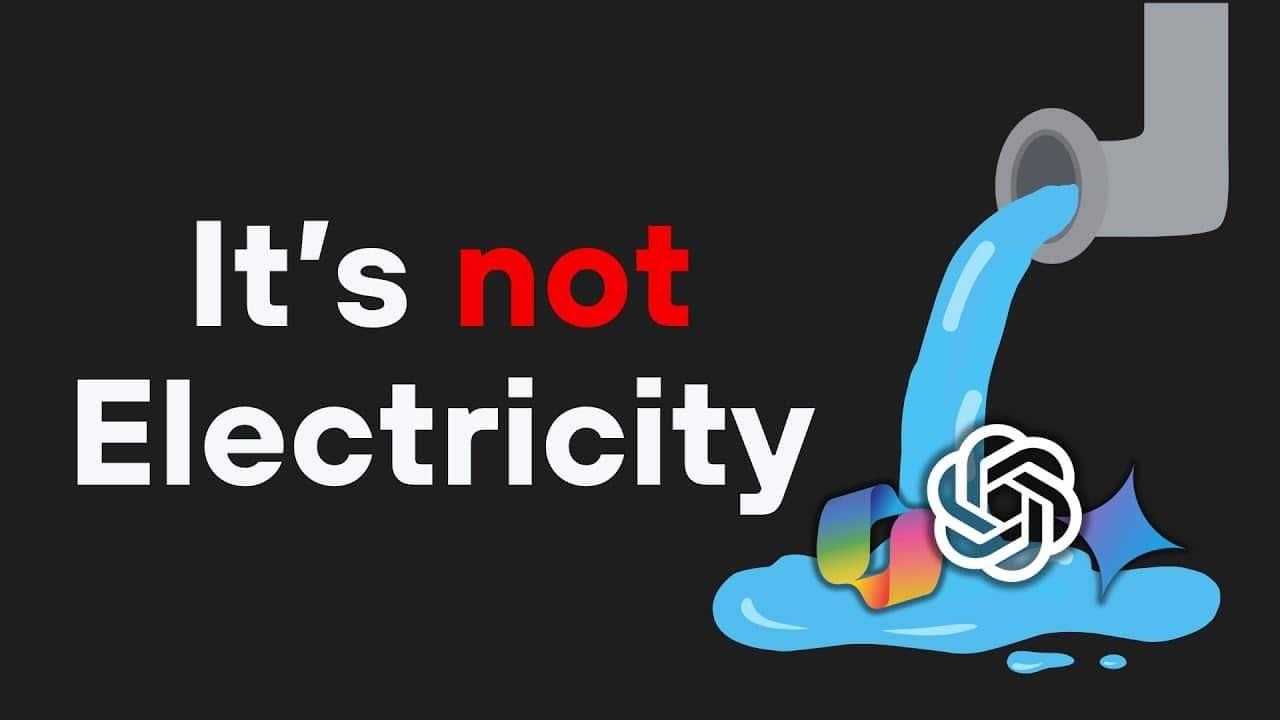
Somebody essentially help to make significantly articles Id state This is the first time I frequented your web page and up to now I surprised with the research you made to make this actual post incredible Fantastic job
Hello, you used to write excellent, but the last few posts have been kinda boringK I miss your super writings. Past few posts are just a little bit out of track! come on!
I really enjoy studying on this site, it has great posts. “I have a new philosophy. I’m only going to dread one day at a time.” by Charles M. Schulz.
I reckon something truly special in this internet site.